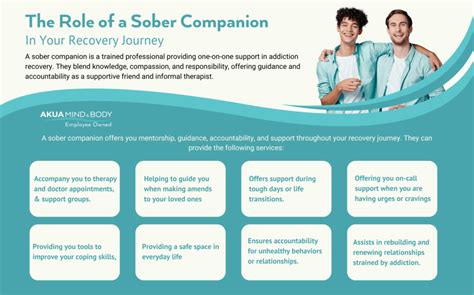Your Guide to a Rewarding Sober Companion Career
Are you passionate about helping others achieve sobriety and maintain a healthy lifestyle? A career as a sober companion might be the perfect fit for you. This fulfilling role offers a unique blend of personal support, practical assistance, and the profound satisfaction of witnessing someone's journey to recovery. This guide will explore the intricacies of this career path, addressing common questions and providing valuable insights for those considering this rewarding vocation.
What Does a Sober Companion Do?
Sober companions provide crucial support to individuals recovering from addiction or struggling with mental health challenges. Their responsibilities extend beyond simply providing companionship; they act as a vital support system, helping clients navigate daily life and avoid triggers that could lead to relapse. This involves a wide range of tasks, including:
- Providing companionship and emotional support: This includes engaging in conversations, offering encouragement, and fostering a sense of connection.
- Accompanying clients to appointments: This could involve doctor's visits, therapy sessions, support group meetings, or other important appointments.
- Assisting with daily living tasks: This might include grocery shopping, meal preparation, cleaning, or managing medication.
- Monitoring and reporting: Sober companions often observe their clients' behavior and report any concerning signs to relevant professionals. This is crucial for maintaining safety and ensuring the client stays on track.
- Promoting healthy lifestyle choices: This includes encouraging exercise, healthy eating, and engaging in positive activities.
- Providing transportation: Driving clients to appointments, outings, or other necessary locations.
What are the Benefits of a Sober Companion Career?
A career as a sober companion offers a multitude of benefits, both personally and professionally:
- High level of job satisfaction: Witnessing the positive impact you have on someone's life is incredibly rewarding.
- Flexibility: Many sober companion positions offer flexible schedules, allowing for a better work-life balance.
- Making a difference: This is a career where you can directly contribute to positive change in someone's life.
- Opportunities for growth: You can specialize in specific areas or pursue further training and education.
What are the Requirements to Become a Sober Companion?
The requirements vary depending on the state and employing agency, but generally include:
- Clean background check: This is crucial due to the sensitive nature of the work.
- Valid driver's license and reliable transportation: Transportation is often a key aspect of the job.
- First aid and CPR certification: Essential for handling emergencies.
- Training and experience: Many agencies require some level of training or experience in addiction recovery or related fields.
- Strong interpersonal skills: The ability to build rapport, communicate effectively, and demonstrate empathy is vital.
- Personal qualities: Patience, compassion, understanding, and strong boundaries are essential traits.
How Much Do Sober Companions Make?
Compensation varies greatly depending on location, experience, and the agency or client. Hourly rates can range from a minimum wage to significantly more depending on the specific requirements and responsibilities.
What is the Difference Between a Sober Companion and a Recovery Coach?
While both roles provide support to individuals in recovery, there are key differences. Sober companions typically focus on the practical aspects of daily living and providing direct support, while recovery coaches often take a more holistic approach, focusing on goal setting, relapse prevention, and addressing underlying issues. Many recovery coaches also do not provide the direct hands-on assistance that sober companions offer.
How Can I Find Sober Companion Jobs?
Many job postings are found through online job boards, specifically those focusing on healthcare or social services. Networking within recovery communities and contacting rehabilitation centers or addiction treatment facilities can also lead to opportunities.
What are the Challenges of Being a Sober Companion?
While extremely rewarding, this career also has its challenges:
- Emotionally demanding work: Witnessing struggles and setbacks can be emotionally taxing.
- Unpredictable situations: Clients may experience unexpected crises or challenges.
- Maintaining professional boundaries: It's crucial to maintain healthy boundaries with clients to avoid burnout.
Conclusion: A Path to Personal and Professional Fulfillment
A career as a sober companion offers a unique path to personal and professional fulfillment. If you possess a strong sense of empathy, a commitment to helping others, and the resilience to face challenges, this rewarding career path may be the perfect avenue for your skills and compassion. Remember to thoroughly research the requirements in your area and choose a reputable agency or client to ensure a safe and positive working environment.

